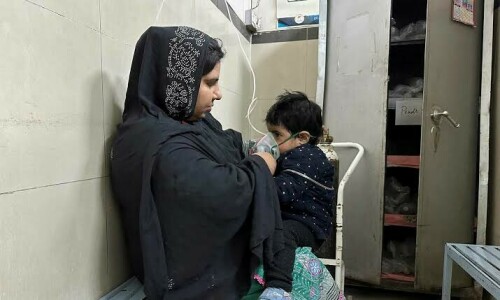
KASUR: The recent Eidul Azha has failed to boost the local leather merchants and commission agents who have been facing hard times for the last couple of years due to a gradual decline in the prices of raw hides.
According to former Kasur Tanneries Association president Abdul Ghafar, the industry is on the verge of closure as over 25 per cent of the industry has been closed down. He said the slump in the hide and leather sector had thrown many with scant resources out of the business.
The factors contributing to the fall of the industry include invention of artificial leather, strong US dollar, remarkable reduction in rebate, decline in demand for leather products in the international market, high prices of chemicals and electricity.Kasur’s Din Gar area is one of the major centres of hides trade where traders skins of animals preserved with salt, imported from Afghanistan, Central Asian states and Gulf, are traded.
According to trader Khalid Husain, the prices of the hides of a cow and a buffalo used to be Rs6,000 in 2013-14, which fell to Rs3,500 in 2015. The following year was even worse when the prices fell to Rs2,000 per hide in 2016-17. Similarly, the prices of the skin of goat and sheep fell from Rs800 in 2013 to Rs200 in 2017.
Trader Muhammad Ashraf Bhola said hides were perishable and could not be stored for a long time.
Nadeem Ali, another trader, is of the opinion if the situation does not improve, hides will be dumped instead of being supplied to market.
According to trader Muhammad Afzal Kochi, bisect leather had devastated the hides industry of Kasur. He also said that the traders had stored hides stocks of of the last year hoping better rates this year but in vain.
Trader Tariq Masood said the leather industries in India, Bangladesh and China were still in a better condition, despite the international slump, just because of the better policies of their governments and relief to the traders. He said that skins of Australian cows and cross breedings were of poor quality and ironically the farming of such animals was on the rise in Pakistan.
He also said that ban on wet blue (the hide at the first processing stage) and unbridled taxes on raw materials, such as chrome, acids, aluminum fertilizers,bi-sulphate, sodium bicarbonate and so on, used in the industry had caused the closure of small units.
Haji Maqsood Ahmed, president of the Kasur Tannery Association, demanded that the government revise policies regarding the leather sector and give relief to the traders in the form of reduction in taxes and increase in rebates. He said that rebates in the 80s were 22 percent which now have reduced to 2.5 percent.
Published in Dawn, September 10th, 2017











































Dear visitor, the comments section is undergoing an overhaul and will return soon.